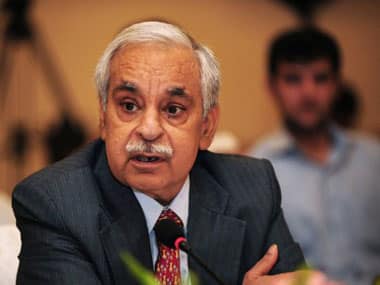Trade Secretary Rahul Khullar believes that Indians must learn to accept higher prices for some goods so that excessive consumption does not have unintended consequences on the fiscal deficit or balance of payments.
“It is my personal view that citizens must learn that they need to pay a higher price for some goods because without that there would be no conservation, there would be no restriction on demand because implicitly we are subsidising what we are consuming,” he told Business Standard in an interview . “We cannot afford that luxury anymore because we then get clobbered on our fiscal deficit and balance of payments. If oil companies are in the red, at some point that has to be corrected. Similarly, I believe that we need to do something urgently on fertiliser and food prices.
 In 2011-2012, India’s exports grew 21 percent, while imports grew at a faster 32 percent. “That is the real cause of the problem,” he said.“Within imports, two specific sectors of petroleum products and gold and precious metals are the big-ticket items. Basically, gold and bullion imports this year had been $19 billion and petroleum imports had been $50 billion, so these have added $69 billion to the trade deficit and that explains its expansion. “
In 2011-2012, India’s exports grew 21 percent, while imports grew at a faster 32 percent. “That is the real cause of the problem,” he said.“Within imports, two specific sectors of petroleum products and gold and precious metals are the big-ticket items. Basically, gold and bullion imports this year had been $19 billion and petroleum imports had been $50 billion, so these have added $69 billion to the trade deficit and that explains its expansion. “
India’s trade deficit, at $185 billion for 2011-2012, is one of the highest in Indian recorded history. As a result, the current account deficit is expected to hit 4 percent or more, Khullar said. While he expects the CAD to slip to3.6 percent in the current financial year,, there are no guarantees. “A sudden spike in the prices of our imports or on food items can make the calculations go haywire,” he warns.
In addition, he was also dismissive of an increasing string of government data errors. Of course, one of the biggest goof-ups came from Khullar’s department itself, after it admitted it had made a $9 billion mistake in estimating exports for the period between April and September last year.
Khullar acknowledged the human error in data releases, but tried to downplay their significance.“Saying such errors impact investment decisions is carrying the criticism too far,” he claimed.
Read the full interview here .
)